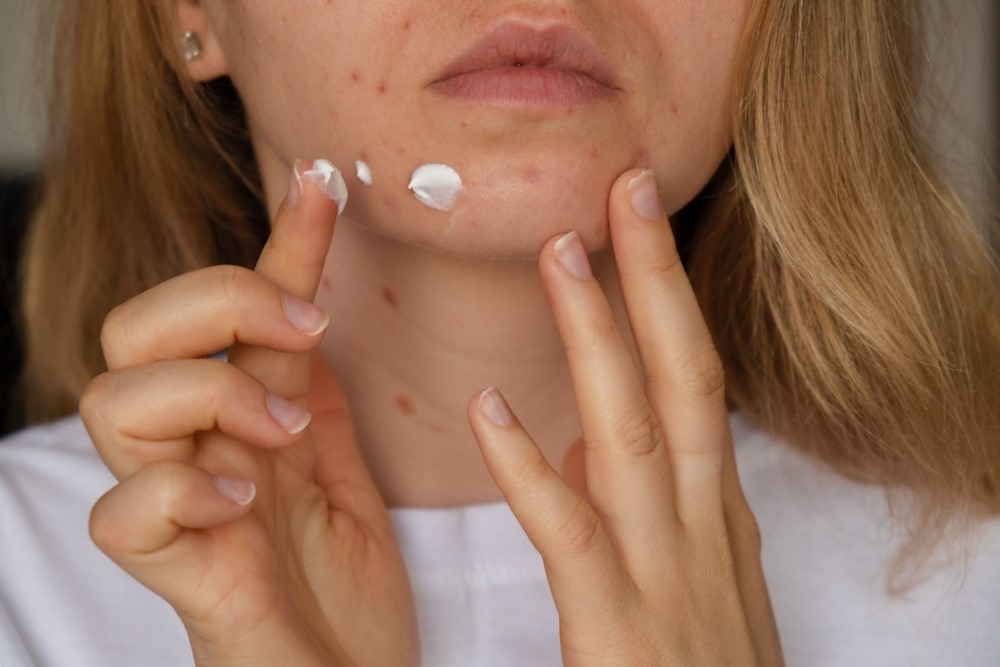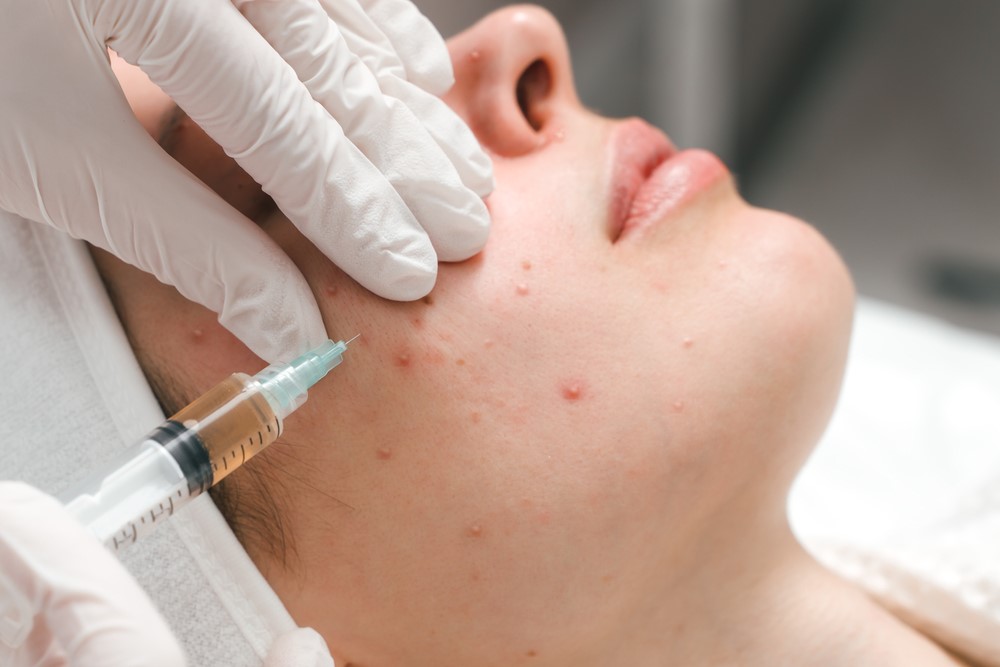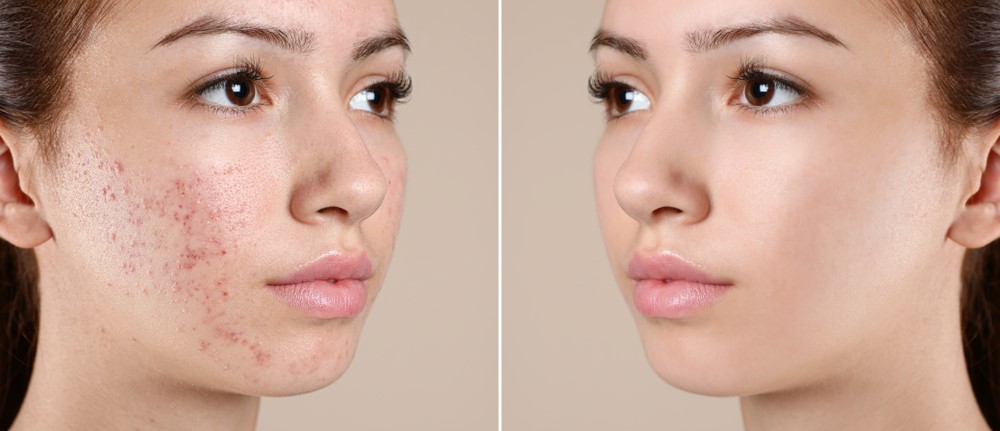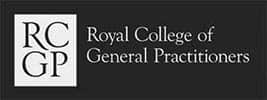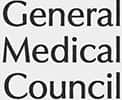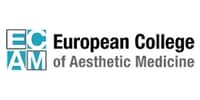Acne is a skin condition that affects millions of people worldwide. While not unusual, the physical and emotional effects push many to seek treatment. There are various degrees of acne, including cystic acne, and treatments can differ. Even once acne is treated, residual scarring can sometimes occur, causing further need for cosmetic and dermatological care.
Acne can occur due to hormonal changes, lifestyle factors, or genetic predisposition. This blog explores the causes, types, and treatments of acne, along with effective methods to reduce acne and treat scarring.
What Causes Acne?
Typically acne can develop during puberty. Hormonal changes cause the body to produce more oil in the skin, which can clog pores. This is also why acne can occur during other stages of life like pregnancy and menopause. However, throughout life, acne generally develops when pores in the skin become clogged with oil, dead skin cells, and bacteria. Common everyday triggers include:
- Hormonal changes during puberty or menstrual cycles
- Stress, which can increase oil production
- Skincare products that clog pores
- Makeup (especially oil-based products)
- Hormonal birth control, such as the mini pill (oestrogen-only contraception).
Adjusting your skincare or makeup routine may help in mild to moderate cases. For severe cases, medical treatments like topical retinoids, antibiotics, or hormonal contraceptives containing oestrogen and progesterone may be necessary.
Types of Acne
Acne can manifest in various forms, ranging from mild blemishes to severe, painful outbreaks. The types of pimples on the face can vary depending on factors like clogged pores, bacteria, and inflammation levels. Identifying the severity of your acne is essential for choosing the right treatment. Below is a breakdown of the common types of acne and how they differ in appearance and impact.
- Mild Acne: Whiteheads, blackheads, and occasional inflamed lumps.
- Moderate Acne: Inflamed red papules and pustules with white centres.
- Severe Acne: Painful cysts or nodules beneath the skin.
What Is Cystic Acne?
Cystic acne is a severe acne where deep cysts form beneath the skin’s surface. It occurs when clogged pores trap bacteria, leading to inflammation. This causes a large, red and painful bump in the skin full of puss. It’s best to seek treatment for this type of acne as they can cover larger areas of skin, last for long periods and lead to scarring. If a cystic blemish bursts, it can also become infected, leading to other more serious health concerns.
Key Features:
- Affects the dermis (middle skin layer), unlike typical pimples in the epidermis.
- Often found in areas with more oil glands, such as the face, neck, chest, back, and buttocks.
Cystic acne can also significantly impact emotional well-being, as the appearance and discomfort of these blemishes often lead to decreased self-confidence and social anxiety. Unlike milder forms of acne, cystic acne does not typically respond to over-the-counter treatments, making professional intervention essential.
Dermatologists may recommend oral medications like isotretinoin, hormonal therapies, or corticosteroid injections to reduce inflammation and prevent new cysts from forming. Early treatment not only helps manage physical symptoms but also reduces the risk of long-term scarring and emotional distress associated with this severe condition.
Types of Acne Scars
Scars caused by acne appear after a breakout clears. It is more likely after more severe breakouts like cystic acne or nodes. The skin heals itself by creating collagen, but when it can’t make enough to fill the area, depressed acne scars appear. This type of acne scars come in several forms, including:
- Ice Pick Scars: Deep indentations, narrow at the bottom, found on cheeks or forehead.
- Rolling Scars: Wavy depressions on the jawline or lower cheeks.
- Boxcar Scars: Broad, box-like indents, often on the lower cheeks.
- Keloid/Hypertrophic Scars: Raised scars, usually on the chest, back, or shoulders.
How to Cure Acne Scars
Treating acne scars effectively requires a tailored approach based on the type and severity of the scarring. While over-the-counter products may improve mild discolouration or surface irregularities, more persistent scars often need professional treatments. Here are some common methods to address acne scars:
- Topical Treatments: Products containing retinoids, vitamin C, or alpha-hydroxy acids (AHAs) can help improve skin texture and reduce discolouration over time.
- Chemical Peels: These exfoliate the skin’s outer layer, promoting smoother skin and reducing the appearance of scars.
- Microneedling: Stimulates collagen production, helping to fill in atrophic scars like rolling or boxcar scars.
- Dermal Fillers: Used for depressed scars, fillers temporarily smooth the skin by adding volume to sunken areas.
It’s important to consult with a dermatologist to determine the most effective combination of treatments for your skin. Early intervention can help achieve better results and restore skin confidence.
Treatments for Acne
There are numerous effective options available to help manage acne, enhance your skin’s health, and reduce the appearance of scars. These treatments range from simple over-the-counter remedies to advanced dermatological procedures tailored to address various degrees of acne severity and scarring. With the right approach, you can achieve noticeable improvements in both the texture and appearance of your skin.
Over-the-Counter Treatments
Certain topical creams can treat mild to moderate acne. These can be purchased without a prescription, but it’s still best to speak with a dermal specialist or your GP as there may be side effects, or you could potentially have an allergic reaction.
- Products containing alpha-hydroxy acids (AHAs) are known to promote skin renewal, helping to diminish the appearance of scars over time.
- Retinoids are effective for atrophic acne scars, reducing indentations over time. They come in cream form but shouldn’t be used when pregnant as they can cause birth defects.
- Benzoyl peroxide is a powerful ingredient commonly found in over-the-counter acne treatments. It works by killing acne-causing bacteria, reducing inflammation, and clearing clogged pores. Available in various forms such as gels, creams, and cleansers, it’s effective for treating mild to moderate acne.
Professional Treatments
Treatment for moderate to severe acne is similar to treating acne scars; prescription treatments can provide more targeted and effective results. These treatments are typically prescribed by a dermatologist, cosmetic specialist, or GP and include options like topical retinoids, oral antibiotics, and hormonal therapies.
- Chemical peels are a popular treatment for reducing acne scars by exfoliating and removing the outer layers of damaged skin, promoting smoother, healthier skin. The depth of the peel determines its effectiveness and recovery time.
- Medium peels for moderate scars.
- Deep peels for severe, deep scars (performed once every two years).
- Microneedling: Involves the use of fine needles to create tiny punctures in the skin, stimulating the natural healing process and encouraging collagen production. This treatment is particularly effective for reducing the appearance of atrophic scars like rolling and boxcar scars.
- Platelet-rich plasma (PRP) Therapy: PRP therapy enhances collagen and elastin production by injecting plasma derived from your blood into the skin. The process involves drawing a small amount of blood, spinning it in a centrifuge to isolate the plasma, and then carefully injecting it into the targeted areas.
Preventing Acne and Scarring
Preventing acne and reducing the risk of scarring involves a combination of consistent skincare practices, lifestyle adjustments, and early intervention for breakouts. While it’s impossible to control all contributing factors like genetics or hormonal changes, certain steps can significantly minimise acne and its long-term effects.
Daily Skincare Routine
A simple skincare routine can greatly help reduce acne. The process can remove oil and help unclog pores. Being proactive and disciplined will have good long-term results for low to moderate acne. However, if you see no results after long periods or have cystic acne, it’s best to speak to a specialist.
- Cleanse Regularly: Use a gentle, non-comedogenic cleanser to remove excess oil, dirt, and makeup without stripping your skin of natural moisture.
- Exfoliate (in Moderation): Use products containing salicylic acid or glycolic acid to unclog pores and promote cell turnover. Avoid over-exfoliating, which can irritate the skin.
- Moisturise: Choose a lightweight, oil-free moisturiser to keep your skin hydrated without clogging pores.
- Sunscreen: Apply broad-spectrum sunscreen daily to protect the skin and prevent dark spots or hyperpigmentation from worsening.
Seeking Treatment for Acne
If you’re struggling with acne or acne scars, don’t wait to take the next step towards clearer, healthier skin. At Harley MD, we offer tailored treatments designed to address your unique skin needs. Whether you’re dealing with persistent acne or the lingering effects of scars, we can help guide you through the most effective solutions for achieving smooth, radiant skin.
Book an appointment today and take the first step toward clearer skin and a more confident you.
Frequently Asked Questions (FAQs)
Can stress worsen acne?
Yes, stress increases hormone levels like cortisol, which can trigger oil production and inflammation.
What’s the best way to reduce acne scars?
Combining treatments, such as chemical peels and microneedling, is often the most effective.
Does makeup cause acne?
It can, especially if it clogs pores. Choose non-comedogenic, oil-free products, and always remove makeup before bed.
Can birth control help with acne?
Yes, combined contraceptives with oestrogen and progesterone can regulate hormones and reduce acne.
Are there side effects to acne scar treatments?
Possible side effects include infections, skin colour changes, or recurring keloid scars. Always discuss risks with a professional.
Resources
Stephanie S. Gardner, MD. Cystic Acne. June 14, 2024. From WebMD.


